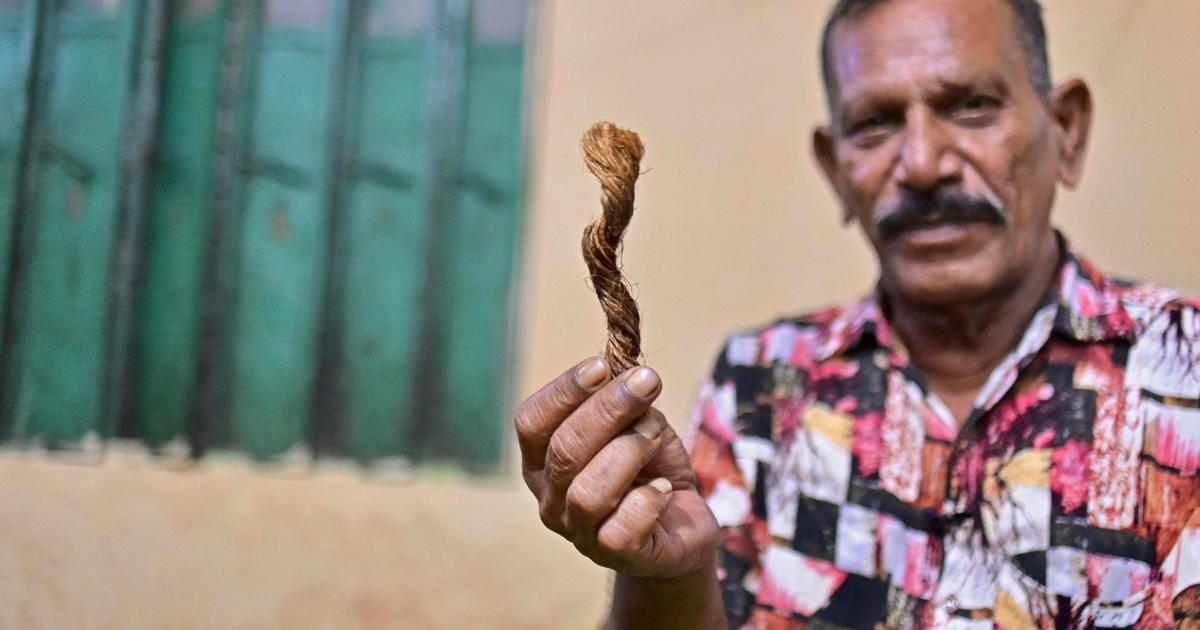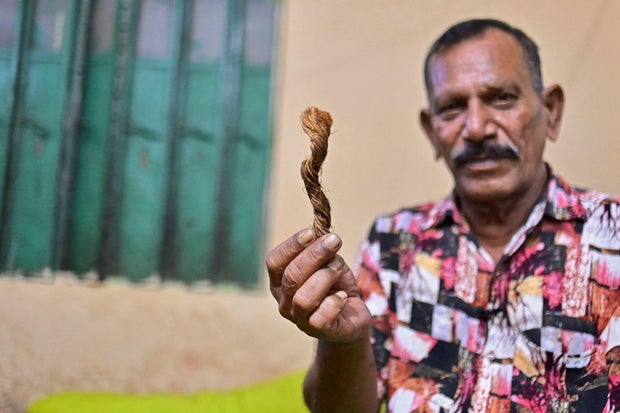[ad_1]
Bangladesh’s deadliest executioner died Monday a year after he was released from prison where he hanged some of the country’s notorious serial killers, opposition politicians convicted of war crimes, and coup plotters, police said.
Since he was released from prison last June, Shahjahan Bouya, 70, wrote a top-selling book narrating his experiences as a hangman, briefly married a young girl 50 years younger than him, and in recent weeks took TikTok by storm with short clips with teenage girls.
He felt chest pain on Monday morning at his home in Hemayetpur, an industrial town outside the capital Dhaka, and was rushed to Dhaka’s Suhrawardy Hospital, police said.
“He was brought in dead — doctors haven’t ascertained the actual cause of his death,” Sajib Dey, a police station chief in Dhaka, told AFP.
“He had breathing difficulties,” Abul Kashem, Bouya’s landlord, told AFP. “He rented one of our rooms only 15 days ago. He lived alone.”
Bouya had been serving a 42-year-old jail term over a murder. But the dozens of hangings he did in the jails helped reduce his sentence leading to his release from Dhaka’s top jail last year.
MUNIR UZ ZAMAN/AFP via Getty Images
Bangladesh ranks third in the world for death sentences passed, according to rights group Amnesty International, and assigns convicts to carry out the hangings.
Between 2018 and 2022, Amnesty International reported that 912 death sentences were imposed by trial courts in Bangladesh. As of December 2022, at least 2,000 people were condemned to die in the country, Amnesty said.
“A hangman has so much power”
A well-read Marxist revolutionary, Bouya in the 1970s joined the outlawed Sarbahara rebels trying to topple a government they saw as puppets of neighboring India. He was convicted for the 1979 death of a truck driver in crossfire with police.
In custody during his trial — a glacial 12-year process — he noticed the “first class” treatment afforded to executioners, watching one being massaged by four other inmates.
“A hangman has so much power,” he said to himself and volunteered his services.
Prison authorities put Bouya’s total at 26 executions, but he said he participated in 60.
Those to die at his hands included military officers found guilty of plotting a 1975 coup and killing the country’s founding leader, the father of current Prime Minister Sheikh Hasina.
Activists say that Bangladesh’s criminal justice system is deeply flawed, but Bouya shrugged off their criticisms, even though he believes at least three of those he executed were innocent.
“Even if you feel bad for him, can you keep him alive, or can you save him?” he told AFP last year. “If I didn’t hang them, someone else would have done the job.”
In February, his book on his years as a hangman was published and became a best-seller at Bangladesh’s largest book annual book fair.
His 96-page book narrates the procedures of hanging by ropes the country inherited from the British colonial rulers.
He described the process nonchalantly, never wading into the debates over the abolition of executions.
He also dwelled on the final moments of some of the country’s controversial figures and serial killers.
After his release from prison, he proudly showed visitors a small piece of the rope — one cord can last up to a decade — on which many inmates died.
“People believe it has extraordinary power,” he said, adding some used fiber from it as talismanic charms in amulets or tied around their wrists.




